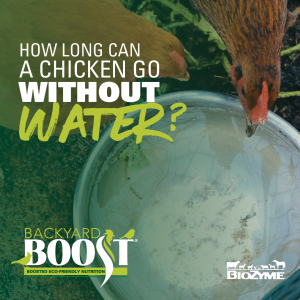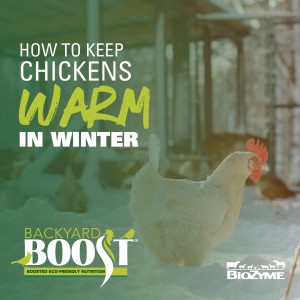
Chicken Heat Stress Symptoms
Chicken heat stress can have serious implications for their health, welfare and productivity—particularly during hot and humid conditions. Recognizing the signs of heat stress in chickens is crucial for implementing timely interventions to prevent heat-related illnesses and losses.
Chicken Heat Stress Symptoms
Some common chicken heat stress symptoms include:
Panting & Open-Mouth Breathing
Panting is a natural mechanism for chickens to regulate body temperature and disperse heat. Heat-stressed chickens may exhibit rapid, shallow breathing or open-mouth breathing as they attempt to cool down.
Decreased Feed Intake
Heat-stressed chickens may reduce their feed consumption due to decreased appetite and metabolic stress. Reduced feed intake can lead to poor growth, weight loss and nutritional deficiencies.
Increased Water Consumption
Heat-stressed chickens may increase their water intake to maintain hydration and regulate body temperature. Providing access to clean, fresh water is essential during periods of heat stress to prevent dehydration and heat-related health issues.
Reduced Egg Production
High environmental temperatures combined with excess humidity can negatively impact egg production and quality in laying hens. Heat-stressed hens may exhibit a decrease in egg production, smaller egg sizes and an increase in abnormal or misshapen eggs.
Lethargy & Weakness
Heat-stressed chickens may appear lethargic, listless, and reluctant to move. They may also exhibit weakness, lack of energy, and reduced activity levels as they conserve energy and attempt to minimize heat production.
Spread Wings & Seeking Shade
Chickens experiencing heat stress might spread their wings away from their body to increase surface area and promote heat dissipation. They may seek shade, shelter or cool, shaded areas to escape direct sunlight and reduce heat exposure.
Pale Combs & Wattles
The combs and wattles of heat-stressed chickens may appear pale, discolored or droopy. These are areas of high blood circulation and can be indicators of heat stress and circulatory issues.
Heat-Related Illnesses
Heat stress can predispose chickens to heat-related illnesses, including heat exhaustion, heat stroke, dehydration and electrolyte imbalances. These conditions can be life-threatening if left untreated and require prompt veterinary attention.
Increased Mortality Rates
Severe heat stress can lead to increased mortality rates, particularly in young, old or otherwise vulnerable chickens. Heat-related deaths may occur due to heat stroke, dehydration or organ failure.
Recognizing these chicken heat stress symptoms allows you to implement proactive measures to alleviate heat stress in chickens. This includes everything from cooling interventions and to addressing heat-related illnesses and losses in your flocks. Adequate ventilation, shade, access to clean water and proper management practices are essential for mitigating the effects of heat stress on chicken health and welfare.
Backyard Boost® Can Help
At BioZyme® we care about the health and well-being of all animals, including our feathered friends. That is why we created the Backyard Boost line of products purposefully crafted to support the well-being of birds.
Backyard Boost Defense is a liquid supplement for poultry designed to support digestion and healthy immune response. Ideal for those with chicken heat stress symptoms, Defense promotes water intake and hydration and provides nutrients needed in times of stress. It is powered by AO-Biotics® Amaferm®, a prebiotic research-proven to enhance digestibility.
Add Backyard Boost Defense to your chickens’ clean, fresh water daily to help with signs and symptoms of heat stress to help bounce them back and alleviate heat stress.
Get your Backyard Boost Today!
Backyard Boost is available for purchase online.
Maybe you prefer to shop locally? You can find a dealer near you at our dealer locator.
Stay Up to Date on Backyard Boost News
You can sign up for our monthly newsletter or find out more information about caring for your chickens.

